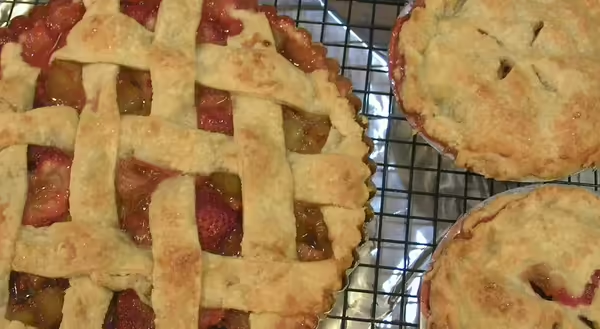
From tried-and-true favorites to exciting new possibilities, the season of pie has begun.
There are few things tastier than a freshly baked pie.
As the seasons advance, each month brings new “pies-sobilities.” Savor a tasty slice of pie this season and consider growing next year’s pie filling at home in a “pie” garden.
Central Illinois experiences hot summers and cold winters, which can make it challenging to grow certain fruits. However, with careful planning, patience, and healthy, well-draining Central Illinois soil (pH 6.0 - 7.0), it is not only possible but relatively easy to grow a successful pie garden.
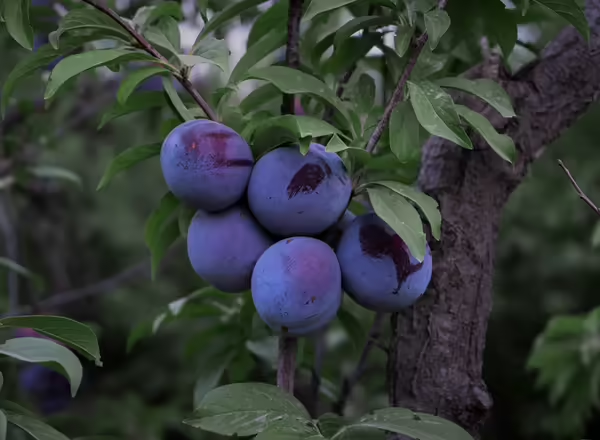
Stone fruits, named for the inner hard pit, are a common pie filling. With a flavor profile ranging from sour to very sweet, the fruits, available June through September, are a cornerstone of a pie garden. This family includes tart cherry (ripe in June), plums and apricots (ripe in July), and peaches (ripe from late June – early September, based on variety).
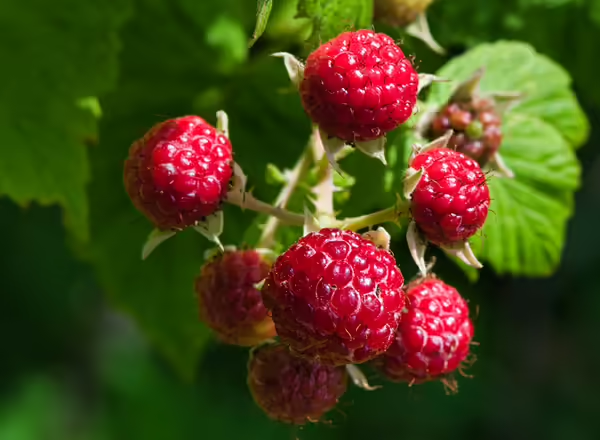
With a similar range of sweet to sour profile, strawberries and raspberries are excellent candidates for the pie garden.
June-bearing strawberries offer bulk berry production early in summer; everbearing strawberries offer a small, but consistent crop in spring and late summer through early fall. With strawberries growing nearly all season, a slice of the fan favorite, strawberry pie, can always be available.
Raspberries also provide a season-long crop from summer to fall, if you grow both primocane (fall-bearing) and floricane (summer-bearing) varieties. Raspberries also add color to the pie maker’s life – choose from red, black, purple or yellow varieties. Be sure to snack while picking – these fruits are rich in vitamins and antioxidants!
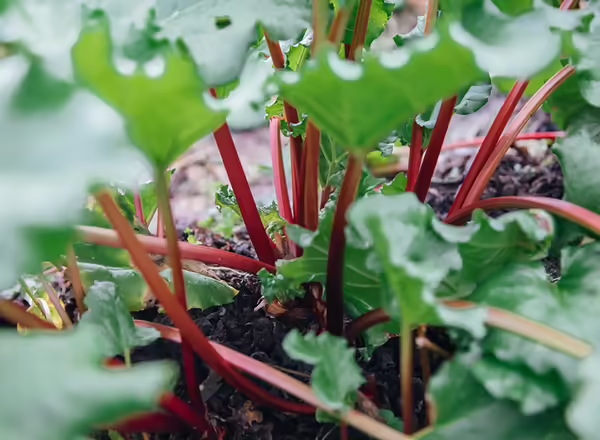
With the addition of rhubarb in your pie garden, a fan favorite is sure to arise – strawberry rhubarb pie! Easy to grow in Central Illinois, rhubarb is one of the first pie fruits of the season – harvest begins late May into mid-June. Ripening rhubarb coincides beautifully with June-bearing strawberries, but rhubarb alone makes for an excellent, but tart, pie. For all cooking, trim away the leaves and use only the stalks. According to the University of Illinois Extension, the leaves contain high levels of oxalic acid and should not be consumed.
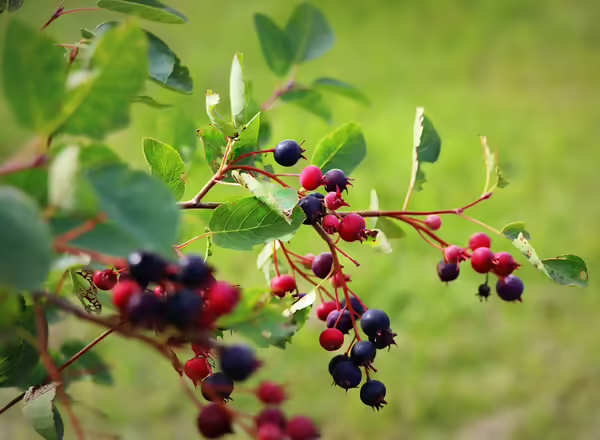
Serviceberry (Amelanchier spp.), also known as juneberry or saskatoon, offers delicious edible berries and doubles as a landscape specimen, displaying showy white to pink flowers in spring. With a flavor profile that is described as blueberry and apple, with subtle floral hints, it is a mild berry and not always preferred raw. However, when incorporated into a pie, the transformation is a beautiful berry flavor, either alone or blended with other pie fruits. Unfortunately, serviceberries are a favorite of birds, you will need to share!
Planting and Care
Your pie garden can begin today. University of Illinois Extension recommends planting potted plants after the danger of frost (April 30) through early June. Although convenient, there is a limited number of varieties available in garden centers. To discover your full pie garden potential, resource inventory in print and online catalogs. These plants are typically sold bareroot and require early spring planting (as soon as the soil can be worked), though for some species, fall planting of bare root stock is acceptable.
Start planning your pie garden now, with a review of fruit varieties online and in catalogs.
Ordering for next spring begins this fall, mark your calendar and don’t forget! Once ordered, the online nursery will prepare and ship your order according to your hardiness zone. Plants will arrive in early spring 2024, just in time for planting! For now, scout out your local farmers markets – they may have strawberries and other fruits to plant this spring.
ABOUT THE AUTHOR: Nick Frillman is a Local Foods and Small Farms Educator serving Livingston, McLean, and Woodford Counties. A fourth-generation graduate from University of Illinois, Frillman has a B.A. with a double major of Political Science and Spanish and a M.S. in Crop Science with a focus on crop production. Before joining Illinois Extension, Frillman completed a field season of CSA and farmers’ market-style production at a small “beyond-organic” vegetable farm in Sandy, Oregon.
ABOUT THE EDITOR: Liz Repplinger is the Agriculture and Natural Resources Program Coordinator serving Livingston, McLean, and Woodford Counties. A Bloomington-Normal native, Liz earned a B. A. in Animal Science and an M.S. in Animal Science from Illinois State University. She has enjoyed contributing to the multiple facets of Extension including previous support of the 4-H Youth Development Program as a program coordinator and current support of Unit and Statewide Diversity, Equity and Inclusion Initiatives.